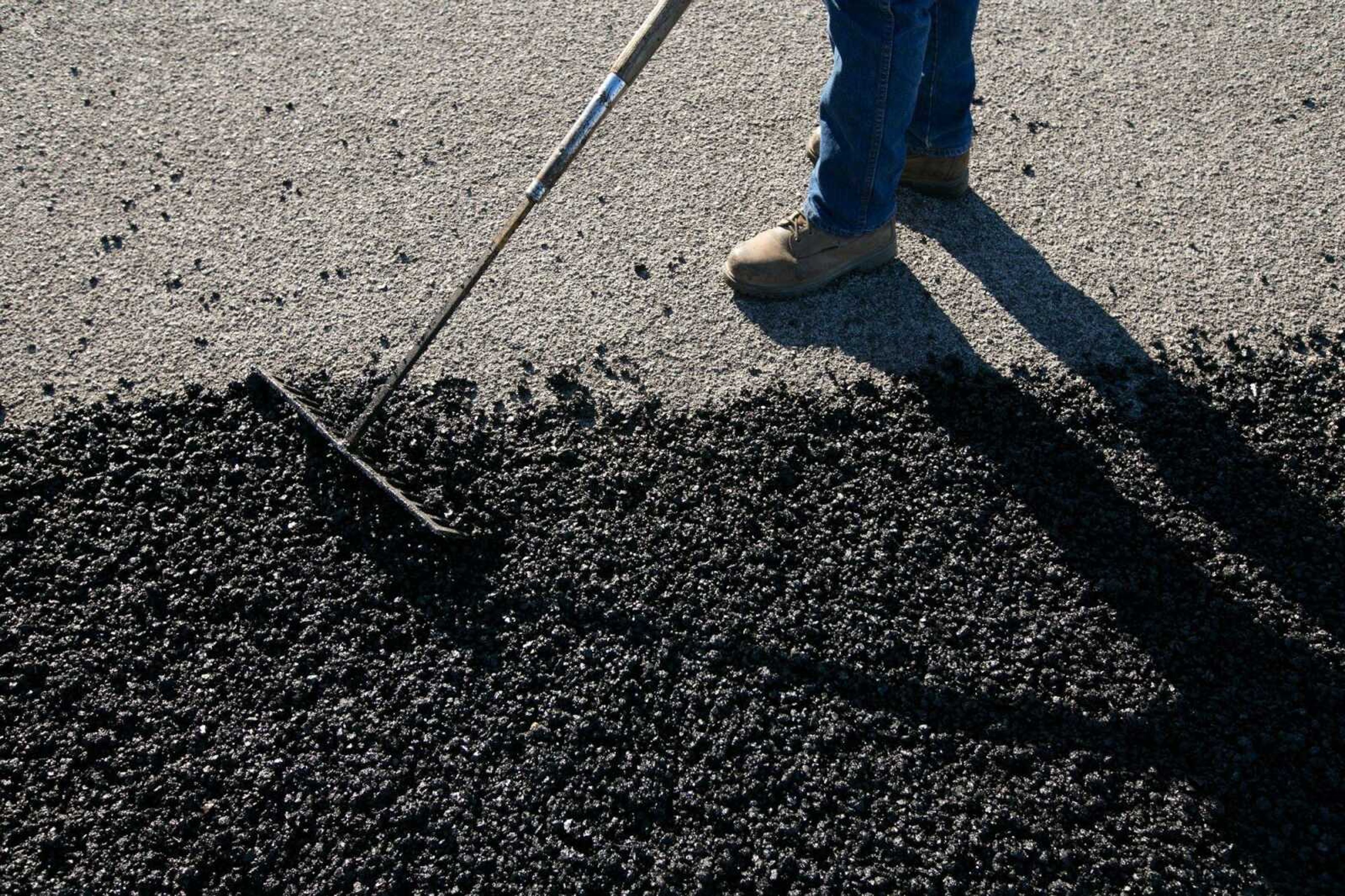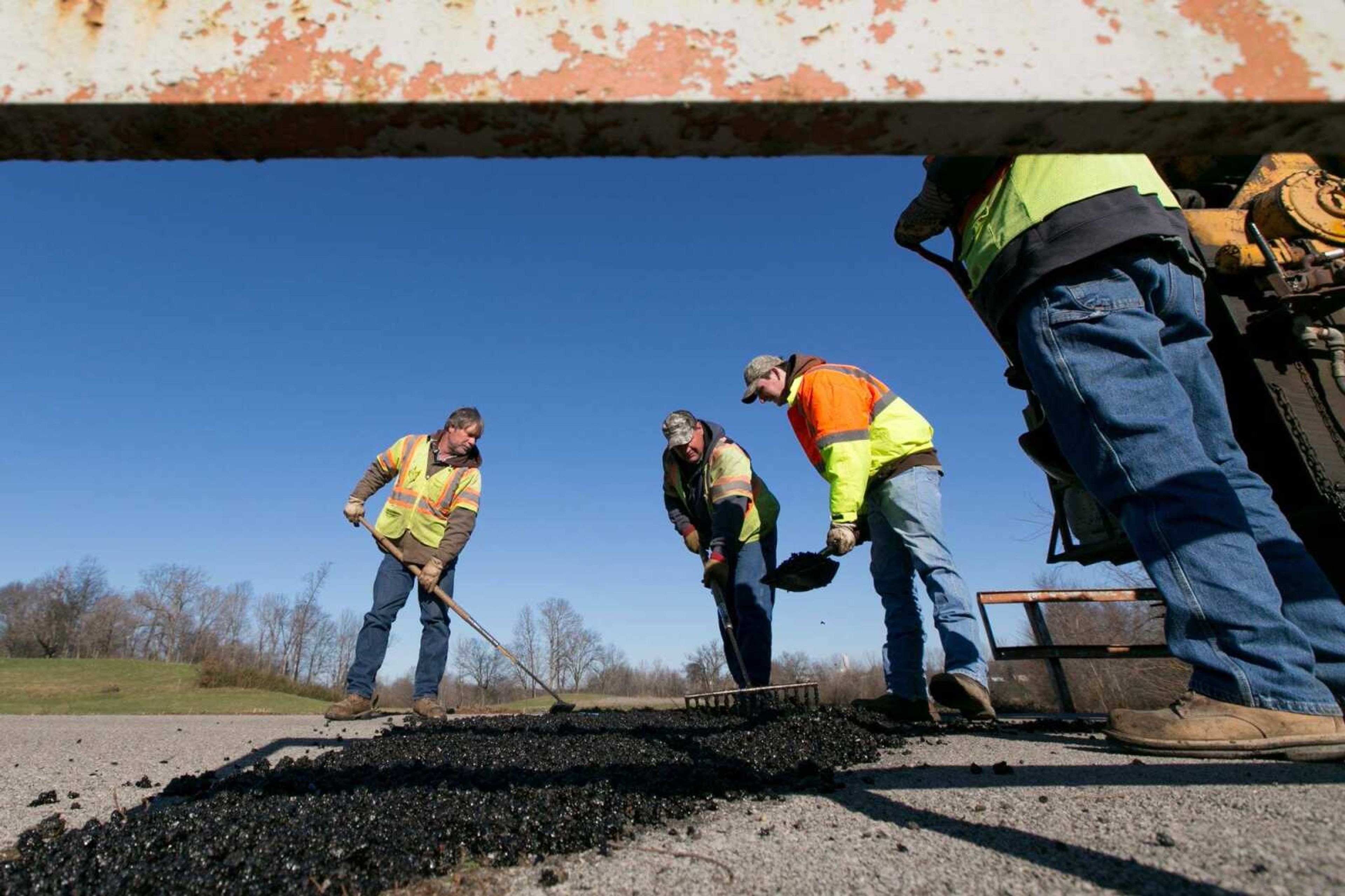The Cape Special Road District was plagued by deteriorating rural bridges. The budget-strapped sheriff's department couldn't pay high enough salaries to recruit and retain officers. Cape Girardeau County's highway department had little money to pave gravel roads.
But that was before voters narrowly approved a half-cent sales tax in August 2006.
Since then, the Proposition 1 sales tax has helped pay for new bridges, boost sheriff's department salaries and pave county roads.
Road district and county officials said the tax has been a funding success. Cape Girardeau County Treasurer Roger Hudson said the tax has raised $56.3 million over the past nine years, including $7.2 million this year alone.
That's provided just over $13 million for the sheriff's department and a similar amount for the paving of county roads, he said. But because the sheriff's department repeatedly has turned over unspent money to the road program, the county highway department actually has spent $14.4 million paving county roads since the tax first was collected in 2007, Hudson said.

But more than half of the total Proposition 1 tax revenue -- over $30 million -- has been distributed to the Cape Special Road District and other local entities, including the towns of Jackson, Allenville, Delta, Gordonville, Oak Ridge, Old Appleton, Pocahontas and Whitewater. About 56 percent of the sales-tax money is funneled to these entities, leaving 44 percent to help fund the sheriff's department and pave county-maintained gravel roads.
As part of the tax measure, county officials agreed to eliminate the county's road and bridge tax. The Cape Special Road District also eliminated its property tax levy, replacing it with money from the sales tax. The towns were promised revenue from the sales tax to replace money they lost in funding because of the elimination of the county's road and bridge tax.
When the assessed valuation goes up in the road district or in a town, that local entity receives more sales tax money equal to what it would have received from the property tax, Hudson said.
"The tax makes everybody whole," Hudson said. "That's how we went out and sold it to the voters."
Even then, the tax passed by only 131 votes.
Its passage has been a blessing for the special road district, said district engineer Mark Phillips. The district maintains about 100 miles of roads, including about 10 miles of roads within Cape Girareau city limits. Kage Road, Old Hopper Road and a section of Perryville Road near the municipal golf course are some of the roads maintained by the special road district within the Cape Girardeau.
Since 2008, the district has paved 66 miles of farm-to-market roads and replaced eight bridges. Most of the roads in the district, which encompasses an area from Route Y on the north to the county line on the south and from Highway 25 east to the Mississippi River, now are paved.
Phillips said the road district's former tax levy generated about $1.5 million a year. The district realized about a $300,000 increase after replacing the tax levy with a share of the county sales-tax money. Phillips said that's because the county typically withheld about 20 percent of the tax-levy money. As part of the sales tax agreement, county officials agreed to provide the district with an amount of Proposition 1 tax money equal to what would have been raised by 100 percent of the property levy in the district, he said.
As a result, the road district has replaced worn-out bridges, Phillips said.
"Our bridges were in very, very poor condition," he recalled.
Without the funding change, he said, the district likely would have been forced to close some of the bridges.
The assessed valuation has climbed slightly since the tax was implemented. This calendar year, the road district received nearly $2 million from the sales tax, the district's sole source of funding.
The added funding has been used to pave and maintain roads and replace bridges as promised, Phillips said.
"We have done exactly what we told the voters we would do," he said.
The Cape County highway department also has paved its share of gravel roads, mostly with asphalt. Since it began receiving the tax money in 2007, the highway department has paved 77 miles of gravel roads, said Scott Bechtold, county highway administrator.
"Without it, we would struggle to get one or two miles a year paved," he said.
The tax also has benefited the sheriff's department. Sheriff John Jordan said it has allowed the department to add about 10 officers to its force and boosted officer salaries. In addition, the department pays mileage costs for its deputies and replaced department vehicles from the money it receives from the sales tax. In the past, those costs were paid out of general county revenue.
Jordan also has placed a lot of the sales-tax money in reserve for future department use.
"We have been putting 15 percent in reserve annually," the sheriff said.
As a result, the sheriff's department's reserve fund totals nearly $1.3 million.
Jordan said before the sales tax, funding for the sheriff's department was a challenge. A deputy earned only $17,000. Jordan said the pay was elevated to $31,000 after passage of the tax measure.
"It has worked out extremely well," Jordan said of the tax. "I thank the voters from the bottom of my heart." The longtime sheriff said he doesn't mind sharing tax revenue with the county's road-paving program and the other local entities.
"I think all and all, it is a good mix," he said.
mbliss@semissourian.com
(573) 388-3641
---
Prop 1 tax
at a glance
Nine-year total: $56.3 million
Sheriff*'s Department share: $13 million
County paving program share: $13 million
Funding for Cape Special Road District and other entities: $30.1 million
Connect with the Southeast Missourian Newsroom:
For corrections to this story or other insights for the editor, click here. To submit a letter to the editor, click here. To learn about the Southeast Missourian’s AI Policy, click here.








